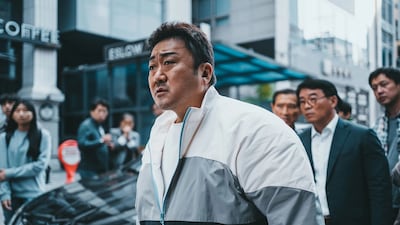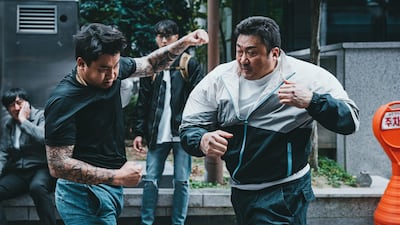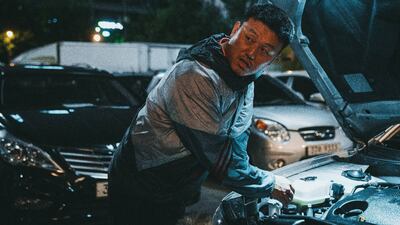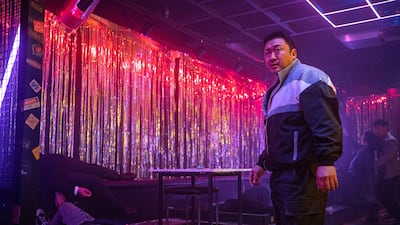When the South Korean crime action film The Outlaws was released in 2017, no one could have envisioned how the franchise would grow. Set in 2004, it introduced audiences to Don Lee’s Detective Ma Seok-do, who uses incredibly aggressive techniques to solve the grisly crimes he’s investigating.
Lee’s performance as Ma struck a chord with viewers. The actor’s stock had been steadily rising in the years prior to The Outlaws. This started with his breakout role in 2012’s The Neighbor, which hit even higher levels with his turn in 2016’s action zombie horror Train to Busan.
The Outlaws confirmed that Lee could lead his very own action film. Last year, he looked to turn it into a franchise by once again playing Ma, this time in its sequel The Roundup. He even took on the role of producer, which proved to be a masterstroke. The Roundup became the highest-grossing South Korean film of the year, earning almost double the one in second (Hansan: Rising Dragon).
Another film was a formality. What’s surprising, though, is that The Roundup: No Way Out has followed merely one year later, with production starting less than two months after its predecessor was released. At times, No Way Out does feel rushed, as its thinly-plotted narrative creaks along in a simple and predictable manner.
For the most part, though, that doesn’t really matter. No Way Out delivers exactly what viewers demand from the franchise, which is Lee’s ridiculously strong and resilient detective repeatedly punching and dismantling idiotic criminals with aplomb.
Lee is once again formidable as Detective Ma, dishing out punishment and delivering laughs with a charisma that you can’t take your eyes off. Sure, his strength has reached such unbelievable heights that it now rivals that of a superhero. But No Way Out always makes sure that you’re pining for him to give the criminals the justice they deserve, rather than questioning how he’s so powerful.
Set seven years after The Roundup, Ma joins a new squad to investigate the death of a young woman. While it initially appears as though she died by suicide, he soon learns she died from a heart attack after taking a dangerous new synthetic drug called Hiper.
This brings Ma into contact with Riki (Munetaka Aoki), a Yakuza-hired hitman, as well as Joo Seong-cheol (Lee Jun-hyuk), a dirty cop, both of whom are battling to sell Hiper in the clubs across Seoul.
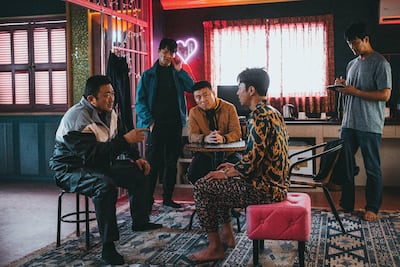
While No Way Out’s plot might not be quite as gripping as viewers would want, returning director Lee Sang-yong deserves praise for his captivating action scenes. Not only do the sequences look slick and stylish, but they unfold with a ferocity and pace that most other action films lack. He also often finds time to mix humour into the action, which only helps to make the scenes more enjoyable.
There’s one in particular – which involves Riki, a machete and a group of foot soldiers trapped in a tight hallway – that’s put together exceptionally well. While the film is undeniably violent, it’s never off-putting.
In fact, the most problematic aspect of No Way Out is Ma’s methods, as he regularly hits first and asks questions later.
Considering that we now live in an age where police brutality is rightfully probed and questioned, watching Ma use excessive force can be uneasy to watch. Of course, the film makes sure to highlight that he only uses violence when provoked and only hits people that deserve it.
Putting these issues to one side, No Way Out is neither a lesser-than nor superior entry to the Crime City franchise than its predecessors. It’s formulaic fun, although Lee’s towering performance and Sang-yong’s increasingly confident direction mean that expectations have immediately risen for its inevitable sequel.
The Roundup: No Way Out is out now in UAE cinemas
